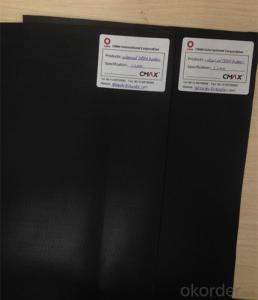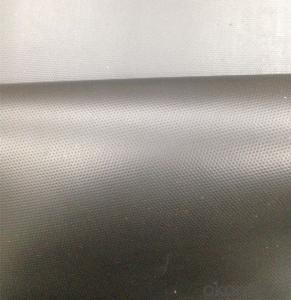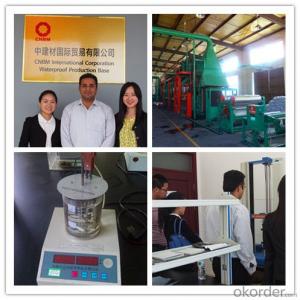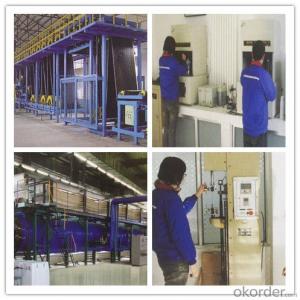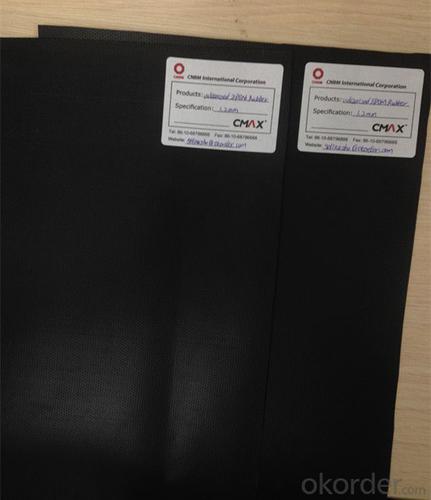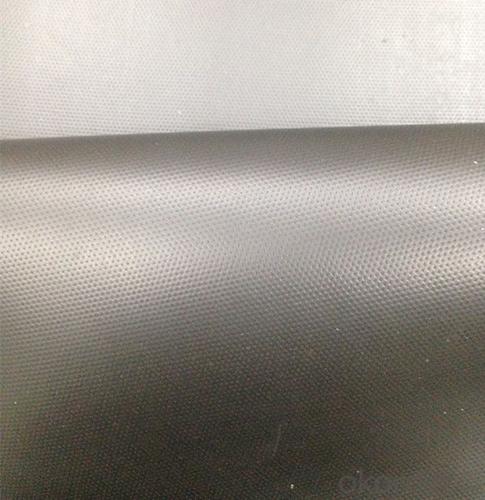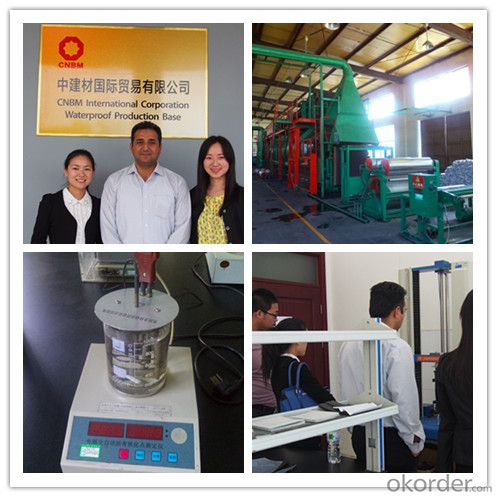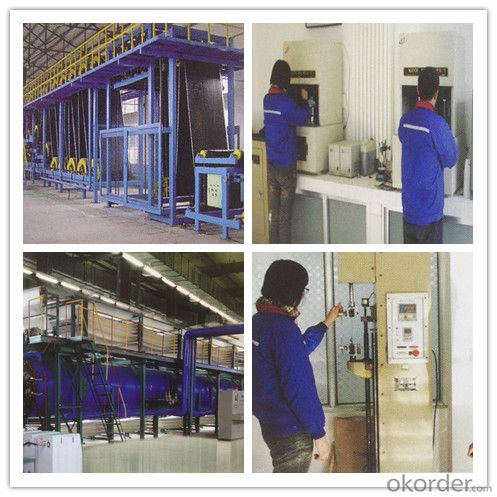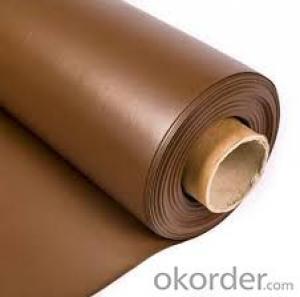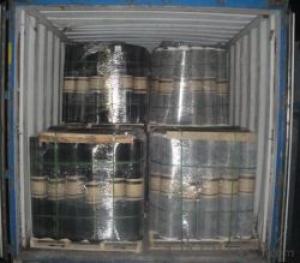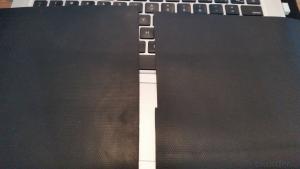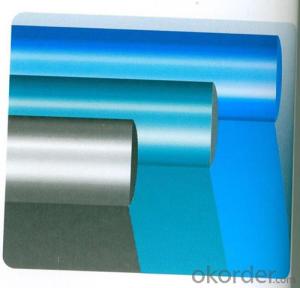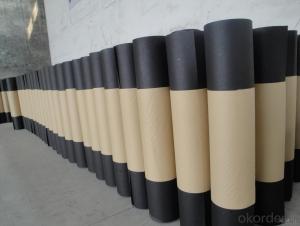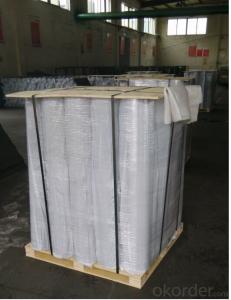EPDM Rubber Waterproof Sheet Good Elongation for Basement
- Loading Port:
- Qingdao
- Payment Terms:
- TT OR LC
- Min Order Qty:
- 3600 m²
- Supply Capability:
- 200000 m²/month
OKorder Service Pledge
OKorder Financial Service
You Might Also Like
EPDM Rubber Waterproof Membrane
Product Instruction:
EPDM waterproof membrane is made from ternary ethylene-propylene rubber,which is designed for waterproofing of exposed and non-exposed applications. EPDM waterproof membrane is of high elasticity among high polymer waterproof materials and becomes a world-popular waterproofing material.
CNBM own the wold-advanced equipment of cold feeding extrusion and continuous vulcanization technology. With the best performance among high polymer waterproof materials, EPDM is of exceptional elasticity and will not split or cracked under normal building movement.
Product Features:
-Excellent weather-ability, durability and size stability
-Good adaptability to high and low temperature, UV resistant and anti-corrosion
-High tensile strength and good elongation, accommodating to structure movement
-Easy installation, solid joint, and mo environmental pollution
-Good rooting penetration resistance
-Service life up to 50 years
Applications:
-Roof, basement, tunnel, pond liner, dam
-Industrial and civil building waterproofing
-Geosynthetic liner for fish ponds, swimming pools, channels, irrigation system
-Especially suitable for projects with high requirement in durability, anti-corrosion and deformation
Specifications:
-Width of roll: 1.2m, 2m, 4m
-Length of roll: 20m, 30m or customized
-Thickness of membrane: 1.2mm, 1.5mm, 2mm
-Type: vulcanized EPDM or welding EPDM
-Application: roof, basement, pond, lake, swimming pool, steel structure roofing, underground, tunnel, etc
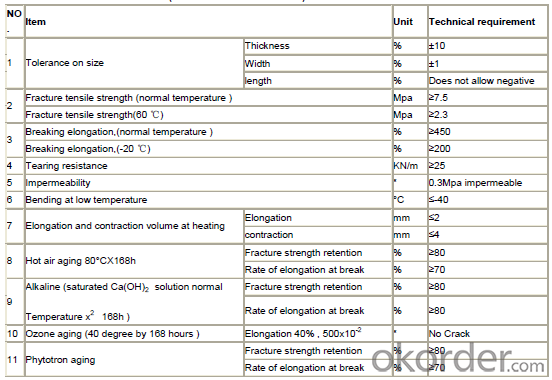
FAQ:
1. Is your EPDM waterproof membrane the real rubber?
Yes, our EPDM membrane is made from top quality rubber, which is imported from America. We support samples for testing, or testing in our factory.
2. How's your products quality?
Our EPDM is with the top quality at home and abroad. Our quality is much higher than Chinese standard. Our product is widely used in Chinese Central government projects. And it's also accpted by customers all over the world, such as EU, USA, Astrulia, etc.
3. What's the service life of your EPDM membrane?
The service life of our EPDM membrane is more than 50 years.
4.What's your MOQ?
Our MOQ is 3000M2.
5. What's your product ability of EPDM membrane?
We own the largest EPDM production line in China. Our product ability of EPDM membrane reaches 2 million square meter per year.
Photos:
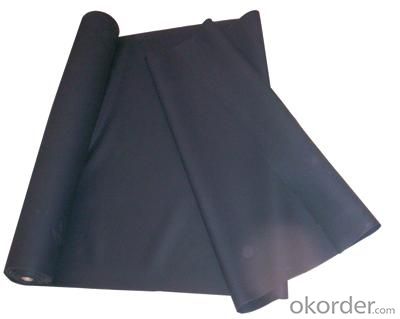
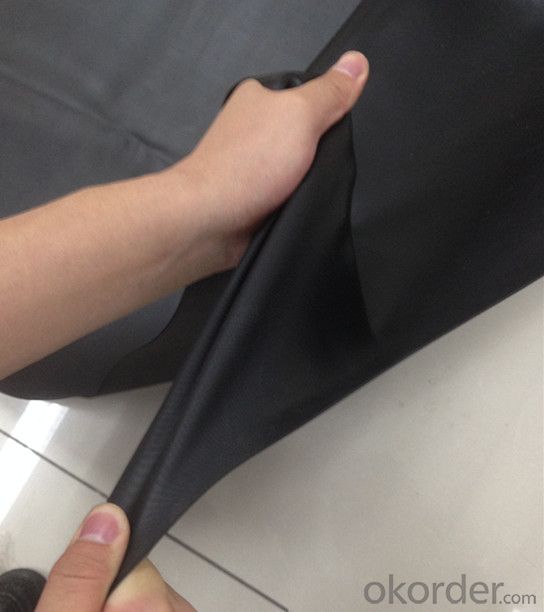
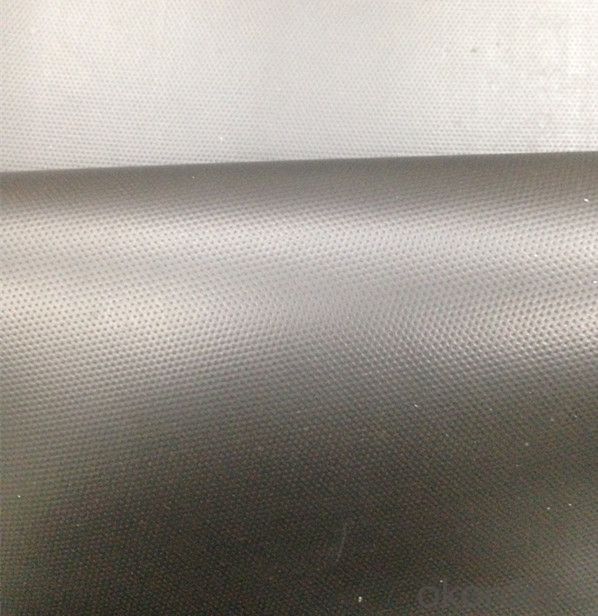
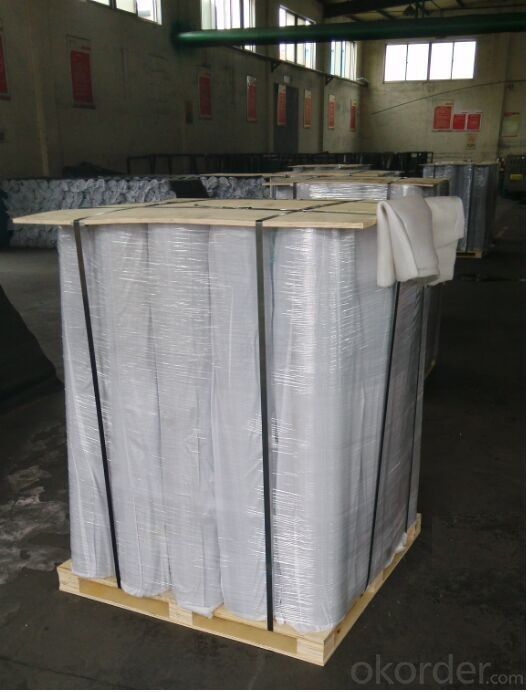
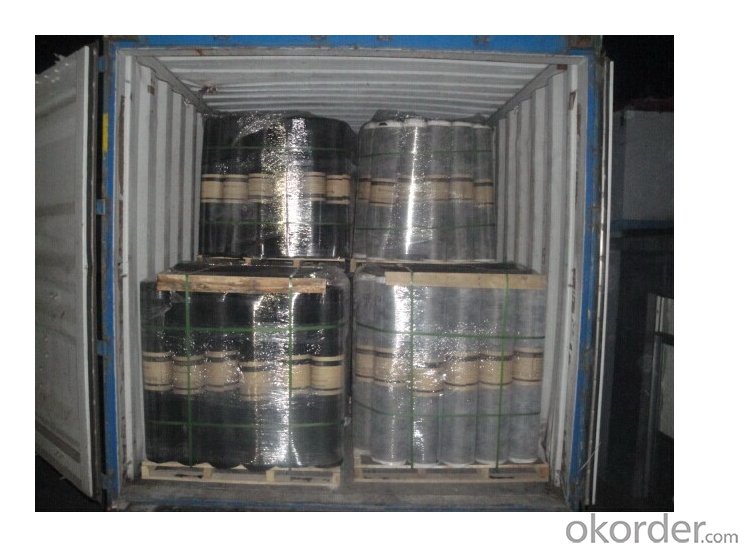
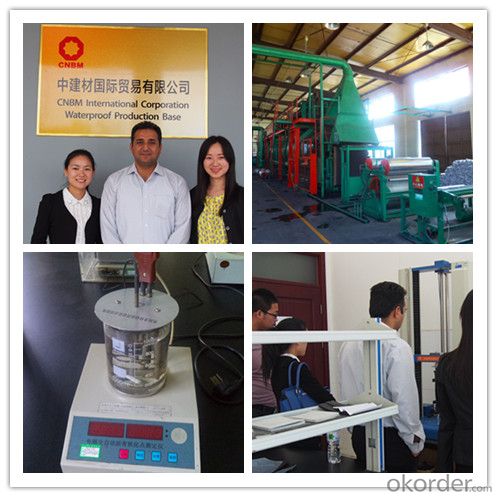
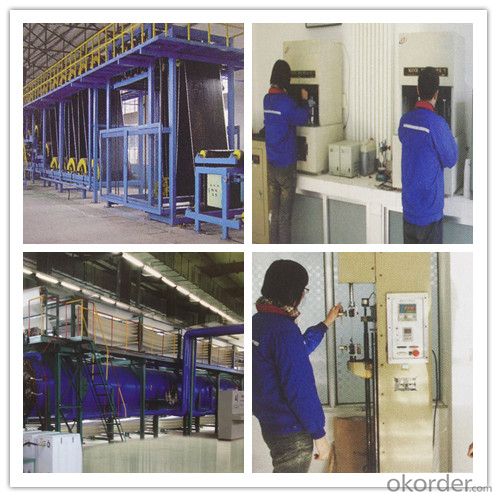
- Q: Are waterproofing membranes suitable for residential basements?
- Yes, waterproofing membranes are suitable for residential basements. Waterproofing membranes are designed to prevent water infiltration and protect the basement from moisture damage. They can be applied to the exterior or interior of the basement walls to create a barrier against water and dampness. This helps to prevent issues such as mold growth, water damage, and structural deterioration. Waterproofing membranes are an effective solution for residential basements as they provide long-lasting protection and can help to create a dry and healthy living environment.
- Q: Can a waterproofing membrane be used in areas with extreme weather conditions, such as hurricanes or snowstorms?
- Areas with extreme weather conditions, such as hurricanes or snowstorms, can benefit from the use of a waterproofing membrane. These membranes are designed to create a protective barrier against water infiltration and can withstand various weather conditions effectively. They are made from moisture-resistant materials and can be installed in roofs, basements, or foundations. In regions prone to hurricanes, waterproofing membranes play a crucial role in preventing water damage. They create a barrier that keeps water out, even during heavy rainfall or storm surges. These membranes are often reinforced and possess high tensile strength to withstand the strong winds and pressure associated with hurricanes. Similarly, in areas experiencing heavy snowstorms, waterproofing membranes are valuable in preventing water intrusion caused by melting snow or ice dams. They are designed to be flexible and resistant to extreme temperatures, ensuring their integrity and leak prevention in freezing conditions. However, it is essential to select the appropriate type of waterproofing membrane for the specific weather conditions in the area. Different membranes offer varying levels of resistance to extreme weather, so consulting with a professional is advisable to determine the most suitable membrane for the climate and weather patterns. Additionally, proper installation and regular maintenance are crucial to ensure the longevity and effectiveness of the waterproofing system in extreme weather conditions.
- Q: Can a waterproofing membrane be used in swimming pools or other water features?
- Yes, a waterproofing membrane can definitely be used in swimming pools or other water features. In fact, it is highly recommended to use a waterproofing membrane in these areas to prevent water leakage and damage. A waterproofing membrane acts as a barrier between the water and the surrounding structures, ensuring that the water is contained within the pool or water feature. It helps to prevent water seepage, which can cause structural damage and lead to costly repairs. Additionally, a waterproofing membrane also helps to protect the pool or water feature from the harsh chemicals used for water treatment, ensuring its longevity and durability. Therefore, using a waterproofing membrane is a crucial step in the construction or renovation of swimming pools or other water features to ensure their functionality and longevity.
- Q: Can a waterproofing membrane be used on underground structures?
- Underground structures can benefit from the use of a waterproofing membrane. It is a common practice to apply these membranes to basements, tunnels, and underground parking garages in order to prevent water infiltration and protect against water damage. Typically made of materials like bitumen, EPDM, or PVC, these membranes are applied to the exterior walls or floors of the structure. Acting as a barrier, they prevent water from seeping in and causing problems like dampness, mold, or structural damage. Moreover, waterproofing membranes can also minimize the risk of leaks, extend the lifespan of the structure, and enhance its durability. Therefore, it is highly recommended to use a waterproofing membrane on underground structures to ensure their long-term integrity and functionality.
- Q: Can a waterproofing membrane be used on precast aluminum surfaces?
- Yes, a waterproofing membrane can be used on precast aluminum surfaces. Waterproofing membranes are designed to protect surfaces from water infiltration, including concrete, metal, and other materials. The membrane acts as a barrier, preventing water from seeping into the precast aluminum surface. This can be particularly beneficial in areas where moisture exposure is high, such as around swimming pools or in outdoor environments. It is important to choose a waterproofing membrane that is compatible with aluminum to ensure proper adhesion and long-term effectiveness.
- Q: Can a waterproofing membrane be installed by a homeowner or is professional installation required?
- Although a homeowner can technically install a waterproofing membrane, it is strongly advised to enlist the services of a professional. Several factors must be taken into consideration, making professional installation the superior choice. To begin with, proper installation of waterproofing membranes necessitates specific knowledge and expertise. Professionals are trained in the correct techniques and possess experience working with various membrane types. They understand the intricacies of the process, including surface preparation, membrane application, and sealing. This expertise guarantees correct installation and effective waterproofing. Furthermore, professionals have access to top-quality materials and tools that homeowners may not readily have access to. They possess knowledge of which membrane type is appropriate for various applications and can recommend the best product based on individual needs. Additionally, professionals have access to specialized equipment, enabling more efficient and effective installation. In addition, professional installation offers the advantage of warranties and guarantees. Reputable waterproofing companies typically provide warranties for their services, providing homeowners with peace of mind. They can trust that any issues that arise will be addressed and resolved by the professionals. Lastly, waterproofing is essential for safeguarding homes against water damage and maintaining structural integrity. Improper installation or a faulty membrane can lead to water leaks, mold growth, and expensive repairs. By hiring a professional, homeowners can be confident that the waterproofing membrane will be installed correctly, reducing the risk of future problems. In conclusion, while it is possible for homeowners to install waterproofing membranes themselves, the complexities of the process and the advantages of professional installation make it highly recommended to hire a professional for this task. Their expertise, access to quality materials, warranties, and guarantees provide homeowners with the reassurance that the job will be carried out correctly and effectively, ultimately protecting their homes from water damage.
- Q: Does a waterproofing membrane require any specific surface preparation for tile installations?
- Yes, a waterproofing membrane does require specific surface preparation for tile installations. The success of the waterproofing membrane and the longevity of the tile installation depend on proper surface preparation. Before installing a waterproofing membrane, it is crucial to ensure that the surface is clean, dry, and free from any contaminants such as dust, debris, oil, grease, or any loose or crumbling materials. The surface should be thoroughly cleaned and any existing tile, adhesive, or grout should be removed if necessary. In addition to cleanliness, it is important to make sure the surface is smooth and even. Any uneven areas or imperfections should be leveled and patched using a suitable patching compound. This will help prevent any water from pooling or seeping underneath the waterproofing membrane, which could lead to potential issues such as leaks, mold growth, or damage to the tile installation. Furthermore, it is essential to ensure that the surface is structurally sound and stable. If there are any cracks, weak areas, or signs of instability, they should be addressed and repaired before installing the waterproofing membrane. This will help provide a solid foundation for the tile installation and prevent any future problems. Overall, proper surface preparation is crucial for the success of a waterproofing membrane and tile installation. It ensures a clean, smooth, and stable surface, which is necessary for the membrane to adhere properly and provide effective waterproofing. Following the manufacturer's guidelines and consulting with a professional if needed can help ensure the correct surface preparation for a long-lasting and reliable tile installation.
- Q: Can a waterproofing membrane be used in showers and wet areas?
- Yes, a waterproofing membrane can definitely be used in showers and wet areas. In fact, it is highly recommended to install a waterproofing membrane in these areas to prevent water damage and leakage. A waterproofing membrane acts as a barrier between the tile or flooring and the subfloor, ensuring that any water that seeps through the surface is contained and directed towards the drains. This helps to protect the underlying structure from moisture damage, such as rotting or mold growth. Additionally, a waterproofing membrane can also help to reduce the risk of water seeping into adjacent areas and causing damage to nearby walls or floors. It is important to ensure that the waterproofing membrane is installed correctly and that all seams, corners, and penetrations are properly sealed to achieve the desired level of waterproofing.
- Q: Is a waterproofing membrane resistant to punctures or tears?
- A waterproofing membrane is created to resist punctures or tears, being made from robust materials like PVC, TPO, or EPDM, renowned for their strength and damage resistance. These membranes undergo extensive testing to ensure they can endure different environmental conditions and potential causes of punctures or tears, like sharp objects or heavy foot traffic. Some waterproofing membranes even have reinforcement layers or added protection to further strengthen their resistance to punctures and tears. Nevertheless, it is crucial to note that while waterproofing membranes are highly durable, they are not entirely immune to damage. Proper installation, regular maintenance, and avoiding unnecessary stress or impact on the membrane can help extend its lifespan and enhance its performance.
- Q: What is the resistance type SBS waterproofing membrane?
- There are three main principles of root-resistant puncture waterproofing membrane: The first is a physical resistance to the beam with the piercing strength as a resistance method.
Send your message to us
EPDM Rubber Waterproof Sheet Good Elongation for Basement
- Loading Port:
- Qingdao
- Payment Terms:
- TT OR LC
- Min Order Qty:
- 3600 m²
- Supply Capability:
- 200000 m²/month
OKorder Service Pledge
OKorder Financial Service
Similar products
Hot products
Hot Searches
Related keywords
